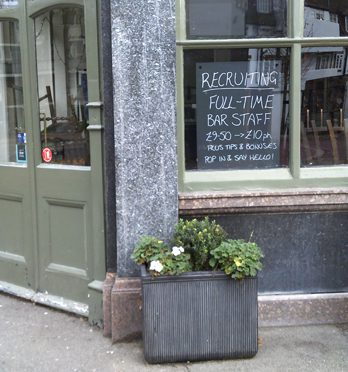Last week’s OSPAs thought leadership webinar by Prof Martin Gill – remarkably, the 175th, starting with the first covid lockdown of spring 2020 – was about incident management, and had the neatest line.
Of the webinars’ many merits is that you get to hear international, English-speaking views. The line came from India, by Sam Mohan Kumar, co-founder of MitKat Advisory, when he said that ‘incident management does not happen incidentally’. It also had the best question: is woke culture affecting recruitment to the security industry? Because (presumably) the young and woke are put off by following orders and the unsocial hours?
First, to confirm that there is such a thing as woke, and that it does find its way into the protective industries. An old contact who has professional and personal links with the police recently assured me that a police force has accommodated a woke recruit, whose gender is fluid. Meaning that one day they identify as male, another female. Woe betide other officers if they speak to them as a ‘he’ on the day that they have decided that they are a ‘she’. It becomes a matter of public policy when that woke person takes offence at remarks made to other people and reports them, because when police add to their complaints unit, that means fewer investigating actual crimes.
Woke people are merely the secular Puritans of our time, whose equivalents in the 1600s disapproved of sport and dancing around maypoles and anything on a Sunday except going to church. Woke may overlap with, but is not the same as a wider wish among young adults, and indeed workers of any age, who wish for a better work-life balance, more to life than work, to not feel exploited, to be choosy, or however you may phrase it.
To return to the OSPAs webinar, the Australian speaker – Suzette Po-Williams, customer service manager, at Central Monitoring Services – and the British one, Paul Miller CSyP, of National Monitoring, each spoke of having to recruit a particular kind of people to do alarm and incident monitoring. Work that can be boring, according to procedures, yet also requiring customer service (the person on the other end of the incident may be harried, or facing a fire, water leak or break-in). Suzette spoke of it having become more difficult to recruit than four years ago, because of covid; her firm had looked to source university students, or ‘mums’.
Whoever, they have to work rostered hours, and Suzette said it’s difficult to find people to work afternoons, evenings and weekends. Here’s the stumbling bloke. Woke people who pride themselves on being ‘creatives’ and wear dungarees may recoil from any job in uniform. The security industry is above all struggling to recruit because it has always had to provide a 24-hour service; factory fencelines need patrolling (whether on foot or by alarm receiving centres) more in the dark than in office hours. The trend to a 24-hour society particularly in the big cities was halted like so many other things by covid, but the drive is to revive it (the Mayor of London Sadiq Khan recently launched ‘Night Time Enterprise Zones‘). The paradox is that the same people driving demand for that 24-hour society, the outgoing young including the woke, who want to go out at night, and eat and drink, and take buses and trains there and back, are the ones who may sniff at working unsocial hours.
Hence security’s struggle to recruit is only part of wider difficulties by the service sector, such as hospitality (pictured, a chalked appeal for bar staff, Kennington, south London). Separately, and politically contentious, is what part Brexit has played. The Security Industry Authority reckons that ten per cent of those it badged had non-UK, EU passports. Some of those may have applied to settle in the UK.
It appears a paradox that the SIA has a record total of badged people, about 400,000; why then the general shortage of contract security officers and door staff? The SIA would say that someone with an SIA badge may choose to not use it. As in so much of its work, the SIA cannot win; security businesses look to it for statistics, to explain the economy; only if the regulator were to seek to track where people did with its badges, that would be sinister state surveillance, which you can be sure the woke would not like.
About the OSPAs webinars
The next is on Thursday from 3.30pm, November 24, on security excellence. Visit https://theospas.com/thought-leadership-webinars/ for free sign-up. There you can also listen to past ones. OSPAs (Outstanding Security Performance Awards) runs from Norway to Australia; a global cyber OSPAs runs a Thought Leadership Summit and exhibition, with the info-security awareness group SASIG, on Thursday afternoon, December 15 at the Novotel London West, before an awards ceremony in the evening.










